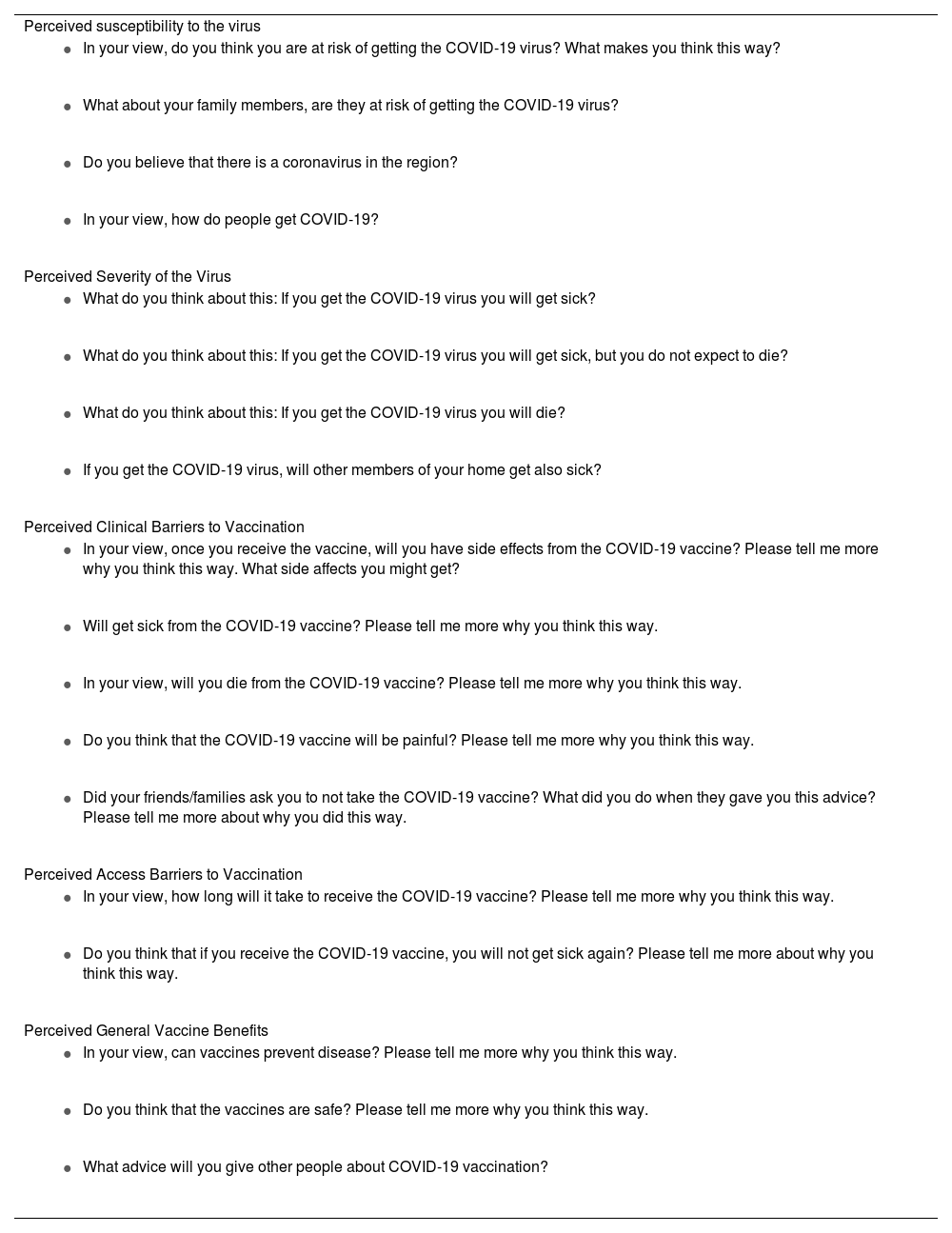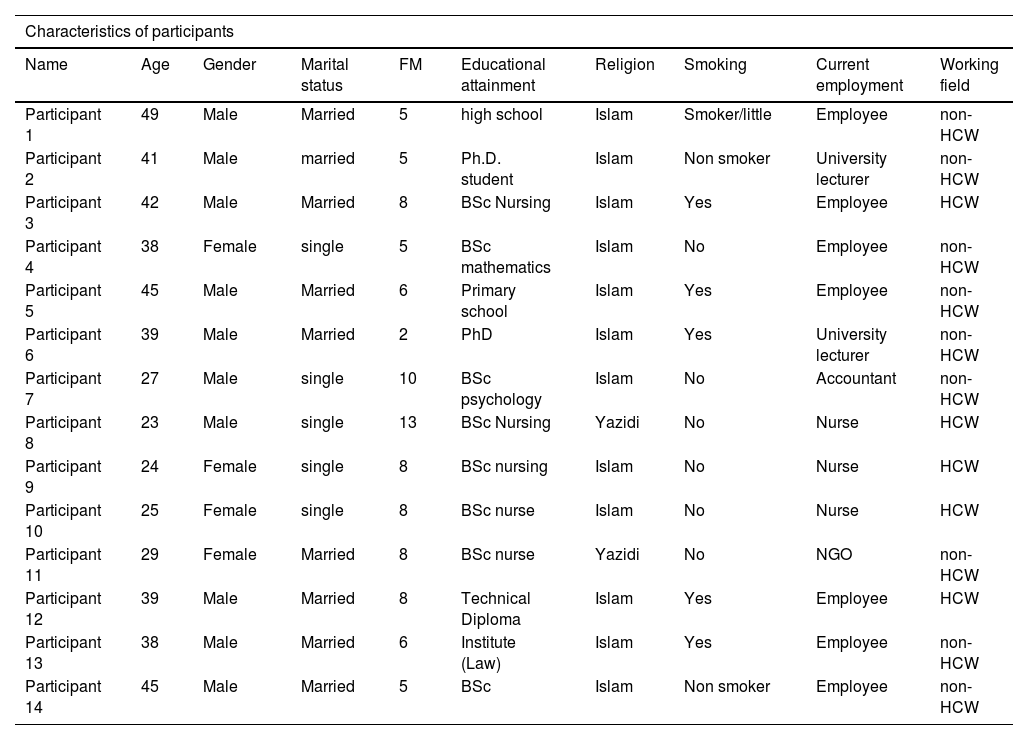The outbreak of coronavirus disease 2019 (COVID-19) has resulted in huge morbidity and mortality since its onset in 2019. By June 24, 2023, only 32.2% of people in low-income countries have received at least one dose. This paper explores the perceptions and trust of vaccine refusers based on the thematic analysis.
MethodsIn this study, we used a descriptive qualitative research design to explore the perceptions of the persons who did not believe in receiving the COVID-19 vaccine in Iraqi Kurdistan. This approach allowed us to explore the COVID-19 vaccine issue in-depth. Individual interviews were conducted with 14 participants in Kurdistan, Iraq.
ResultsResults showed that the participants had a great fear of the serious side effects of COVID-19 vaccines. Some believed that the virus was not natural and had been made by humans for different reasons including making profits from vaccines. Some believed that there was a silver material inside the vaccine that would force people to receive more doses in the future. Few believed that receiving COVID-19 vaccines was crossing the borders of God. Reinfection was a factor in selling more doses of vaccines. The participants were affected by the advice of the community and social media and not receiving the COVID-19 vaccines from healthcare workers, lack of responsibility from the government and companies, and not having trust in vaccines in this region.
ConclusionsConspiracy thinking, perceived negative effects, fear, reinfection, side effects of COVID-19 vaccines could be related to perceived vulnerability and seriousness among vaccine refusers.
El brote de la enfermedad por coronavirus 2019 (COVID-19) ha provocado una gran morbimortalidad desde su inicio en 2019 en Wuhan. Sin embargo, para el 29 de junio de 2022, solo el 17,8% de las personas en países de bajos ingresos han recibido al menos una dosis. Este artículo explora las percepciones y la confianza de los que se niegan a vacunarse en un estudio cualitativo basado en el Modelo de Creencias en Salud.
MétodosEn este estudio, utilizamos un diseño de investigación cualitativo descriptivo para explorar las percepciones de las personas que no creían en recibir la vacuna COVID-19 en el Kurdistán iraquí. Este enfoque nos permitió explorar el tema de la vacuna COVID-19 en profundidad. Se realizaron entrevistas individuales con 14 participantes en Kurdistán, Irak.
ResultadosLos resultados mostraron que los participantes tenían un gran miedo a los efectos secundarios graves de las vacunas contra la COVID-19. Algunos creían que el virus no era natural y que los humanos lo habían creado por diferentes razones, incluida la obtención de ganancias con las vacunas. Algunos creían que había un material plateado dentro de la vacuna que obligaría a las personas a recibir más dosis en el futuro. Pocos creían que recibir vacunas contra el COVID-19 era cruzar las fronteras de Dios. La reinfección fue un factor en la venta de más dosis de vacunas. Los participantes se vieron afectados por los consejos de la comunidad y las redes sociales y no recibir las vacunas contra el COVID-19 de parte de los trabajadores de la salud, la falta de responsabilidad del gobierno y las empresas, y la falta de confianza en las vacunas en esta región.
ConclusiónDescubrimos que los que rechazan la vacuna COVID-19 en su mayoría temen efectos secundarios graves en el Kurdistán iraquí.







